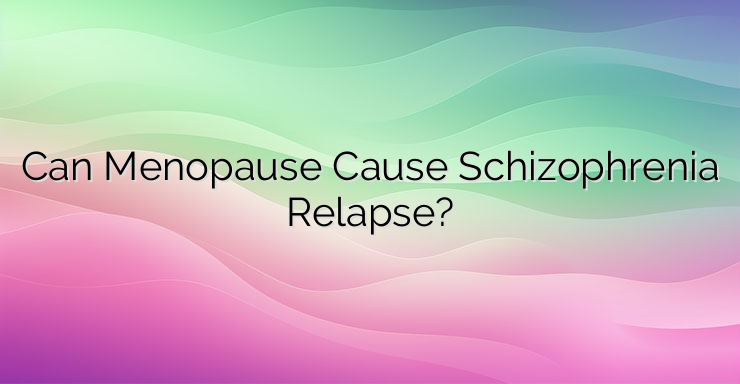Menopause, usually affecting women over the age of 45, can be the cause of relapse of the chronic mental illness schizophrenia. This was revealed by a team of researchers. Schizophrenia is a psychotic disorder that can have different clinical manifestations, for example, lack of emotionality, delirium, hallucinations, neuropsychic agitation, and others. Treatment of this type of disease involves lifelong medication. Patients who suffer from schizophrenia could lead a normal life after proper refinement of their therapy. Hospitalization is usually necessary when the diagnosis is made, which aims to determine the effective dose of medication for the specific person. After that, with good disease control, hospital admission is not necessary. Hospitalization may be necessary in case of a relapse of schizophrenia, which is often expressed in a change in the patient’s behavior – aggressive manifestations, suicidal thoughts and others. If the person is unable to take care of himself or there is a need to perform specific medical interventions, admission to a specialized medical center is also recommended. The new study included 62,000 people with schizophrenia, who were divided into separate groups based on their gender and age. In a detailed review of the patients’ condition and analysis of all the data, the specialists found that women between the ages of 45 and 50 required more frequent hospitalizations due to psychosis, compared to the men included in the study, as well as women under the age of 45. The reason for this is the hormonal change that occurs during menopause in women. After this period, the levels of estrogens in the female body decrease significantly, which may require an adjustment of their drug therapy. In the case of a change in the effectiveness of the treatment carried out until now, as a result of the onset of menopause, increasing the dose of the antipsychotic drug used is not recommended, as this may be the cause of an increase in body weight, the appearance of cardiovascular disorders, cerebrovascular accidents and others. In most cases, it is more appropriate to change the prescribed medication to an antipsychotic that is not affected by reduced estrogen levels, for example Amisulpride and Aripiprazole. It is also possible to use a depot or skin antipsychotic, in which to avoid the effect of the first passage in metabolizing the drugs, as well as the addition of a hormone replacement or a selective modulator of the estrogen receptor. The study was published in the journal Schizophrenia Bulletin. References: https://www.medscape.com/viewarticle/982838?src= https://academic.oup.com/schizophreniabulletin/advance-article/doi/10.1093/schbul/sbac139/6748974?login=false


Leave a Reply